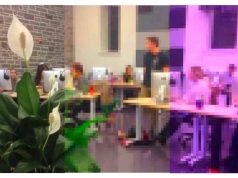Nothing is easier than talking to people who are like you, about things you both agree on. Easy peasy. It’s the differences that make things difficult. More difference leads to more difficulty.
If you’re reading this, I’m guessing you are like me and work in the arts generally, and maybe the theatre specifically. We probably have different tastes in theatre, enjoy different plays, prefer different formats. But can we agree that art can serve a purpose in the quotidien and is not inherently external to everyday life?
It’s probably the hang-over from 8 years of Stephen Harper’s Conservative government that makes me feel like I have to justify the usefulness of my chosen profession: theatre. Art. It’s definitely that same hang-over that leads me to asses our work on a spectrum of “usefulness” to begin with. Whatever happened to art for art’s sake?
Enter PM Justin Trudeau and his government’s promises to restore funding to the arts, to double the allocation to the Canada Council for the Arts, and to accept 25,000 refugees by December 2015.
Whoa. What?
That’s a lot of people. And chances are, that many people making new homes across the country, and the networks that are being established to support them, mean your and my everyday life could very well mean encountering and engaging with individuals who are refugees or their sponsors.
So what does that mean for us, as artists?
In the June edition of #cdncult, Raoul Baneja proposed that the Toronto theatre community collectively sponsor a refugee family. This kind of banding together is happening in cities across Canada. So in this issue, Baneja proposes a specific way that Canadian artists can welcome and support those refugee who might also be artists.
MT Space Artistic Direct Majdi Bou-Matar takes this challenge a step further. While coordinating and meeting with recent arrivals, Bou-Matar poses the key question many of us are asking: at a time of great need, are the efforts and resources we are pouring into art-making well placed?
Lastly, writer and community organizer mia amir writes about the ethics of working with refugees and their stories. Whose stories are told? What is our responsibility to fact, authenticity and ownership?
Finally, if you find yourself moved to help refugee families settling in Canada, but don’t know how, below are some places to start. This list is by no means exhaustive, so send us any updates and we’ll add them.
If you’re interested in learning more about Canadian immigration policy, check out:
- www.neverhome.ca, a site that documents policy changes over nine years. The website is a project of No One Is Illegal | Personne n’est Illégal | Nadie es ilegal, a migrant justice movement.
- Opening Homes and Hearts is a Facebook hub with information and action hub for those interested in sponsoring refugees.
- ISSofBC (a BC-based organization providing settlement support services to immigrants and refugees) published this list of ways to help.
- This list of resources we have begun to compile
Adrienne Wong & Michael Wheeler
Co-Editors: #CdnCult V6E3









